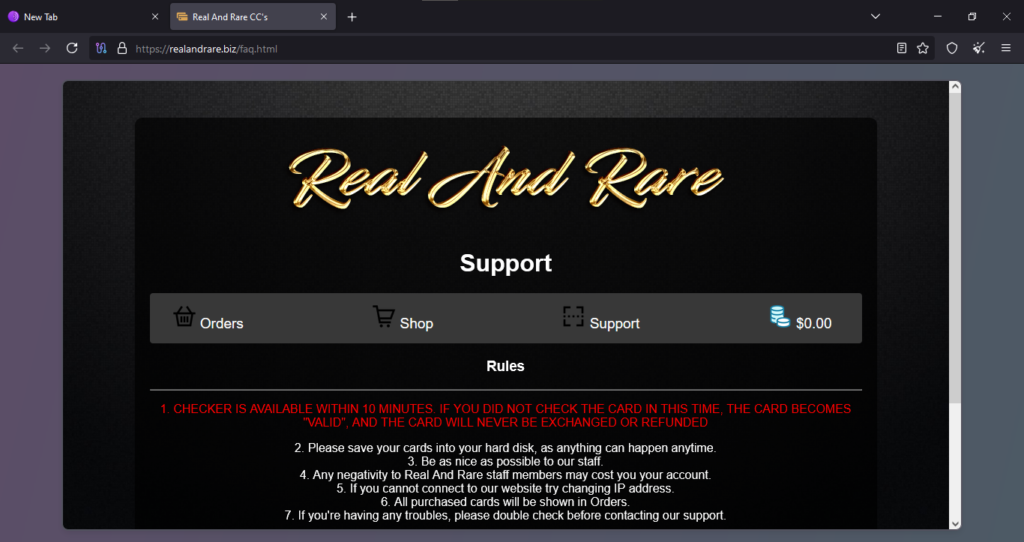Table of Contents
ToggleReal and Rare – TOR Scam Report (64)
Onion Link : https://realandrare.biz/faq.html
Scam Report Date : 2025-01-05
Client Scam Report Breakdown
Original Scam Report :
The client reported sending $100 in Bitcoin (BTC) to activate an account, but the activation was never completed. This report highlights a classic scam scenario where the victim fulfills a payment requirement under false pretenses, only to find that the promised service—in this case, account activation—was never delivered.
The original report serves as evidence of a scam involving cryptocurrency, emphasizing the increasing risks associated with unregulated and anonymous financial transactions. It illustrates how fraudsters exploit digital payment platforms to execute their schemes while remaining difficult to trace.
2. Analysis of Scam Mechanism and Defined Terminology
The scam utilizes a well-documented method in online fraud: advance-fee scams. An advance-fee scam is a type of fraud in which victims are tricked into paying money upfront with the promise of a later reward or service that never materializes. In this case, the promise was account activation, but the scammer disappeared once the payment was received.
Bitcoin (BTC), a decentralized digital currency, played a pivotal role in this scam. Unlike traditional payment methods, Bitcoin transactions are pseudonymous, irreversible, and unregulated. While these attributes make BTC attractive for legitimate purposes, they also make it an appealing tool for fraudsters. The decentralized nature of Bitcoin and the lack of enforceable regulations make it difficult to recover funds once a transaction has been completed.
The date of the scam, December 22, 2024, also provides context. Scams often spike during holiday seasons or end-of-year periods, leveraging the sense of urgency or distraction among potential victims. These psychological tactics are integral to many fraud strategies, further exacerbating their impact.
3. Recommendations and Preventative Measures
To address and mitigate risks associated with such scams, individuals and organizations should adopt several preventative measures. First, verify the legitimacy of services or entities requiring advance payments, especially when they request cryptocurrency. This can include researching the business, checking reviews, or using escrow services that hold funds until services are rendered.
Understanding cryptocurrency transactions is also crucial. Bitcoin’s irreversible nature means that once funds are transferred, they cannot be reclaimed unless the recipient voluntarily returns them. Wallet addresses, such as the one cited, should be scrutinized. Tools like blockchain explorers can provide insights into transaction histories, helping identify potentially suspicious activity.
Lastly, awareness campaigns and education can empower users to recognize red flags in scam scenarios. Terms like “advance-fee scam,” “Bech32 wallet format,” and “cryptocurrency transaction irreversibility” should be made common knowledge to reduce vulnerability. Collaboration with cybersecurity experts and leveraging blockchain analysis tools can further enhance safety measures. By implementing these steps, the likelihood of falling victim to similar scams can be significantly reduced.






